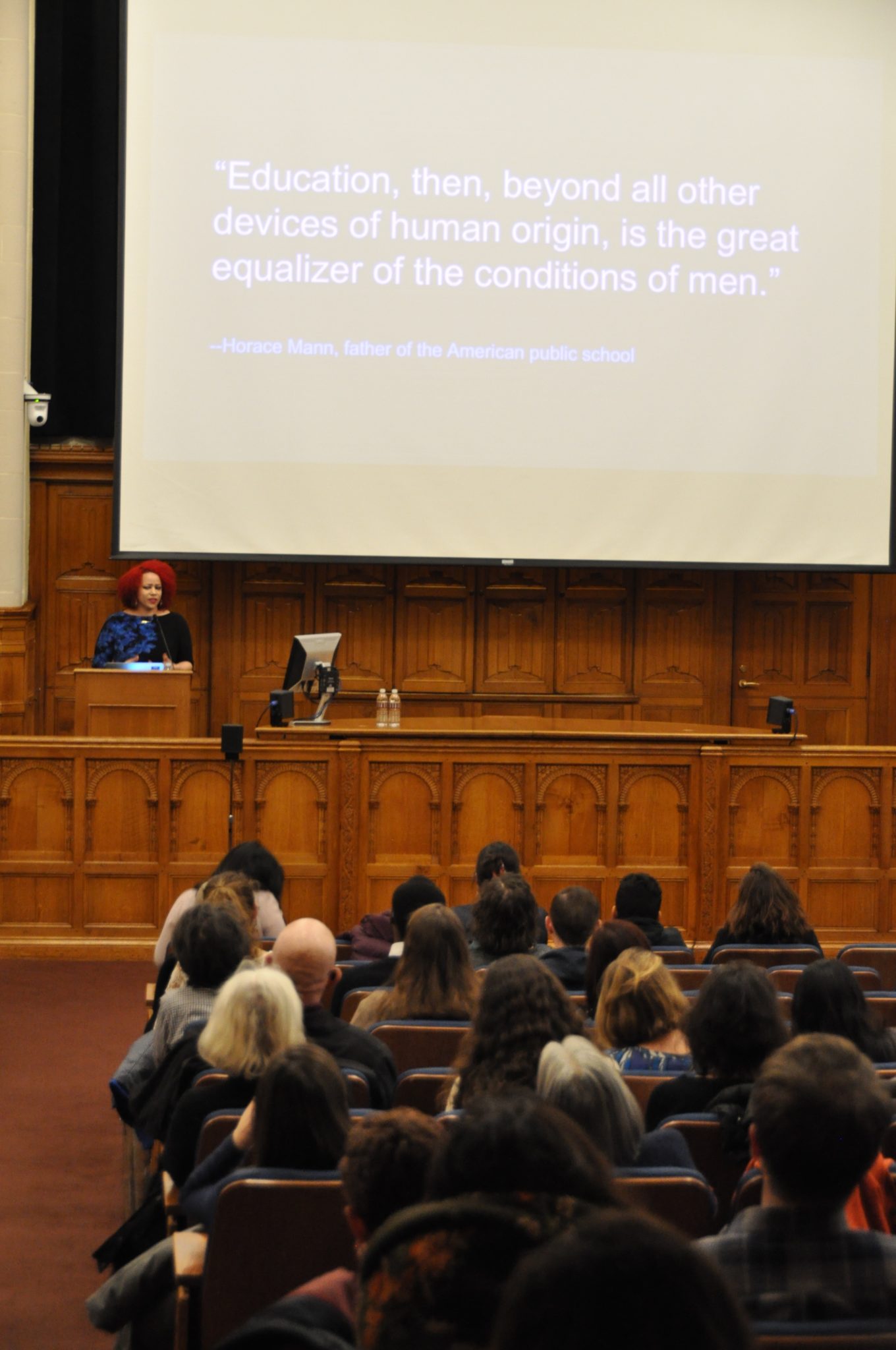
Nikole Hannah-Jones, a staff-writer for The New York Times Magazine, gave a passionate speech Wednesday afternoon about the perils of systematic resegregation in the U.S. public school system and the responsibilities of white Americans to work toward integration. The talk, titled “The Problems We All Live With,” was given at Yale Law School to an audience of Yale students and faculty, as well as local educators, students and parents.
Hannah-Jones offered a brief history of race relations in America, from 1607 to the present day. She aimed to dispel the “myths” of American racism, one of which is that violent segregation was a Southern problem. As evidence against this claim, Hannah-Jones pointed to the Boston bus riots and Connecticut rallies against integration. However, she argued that the most important misconception regarding racism in America is that it is a problem of the past.
“My father was born on a sharecropping farm in Mississippi,” she said. “We’re not liberated from this past at all.”
Hannah-Jones made clear that her words on the power of school integration were not merely matter of opinion and that school integration is “not a partisan issue.” In the years following the Brown v. Board of Education decision, the gap between black students and white students on reading assessments was cut in half, and that gap has widened considerably once again since 1988, the peak of school integration, she said. We create problems, she argued, when we forget that Brown v. Board was a decision that addressed racial caste, not resources.
Hannah-Jones urged the audience to consider the modern reality of a society with such a stark disparity in school quality and resources, asking, “Whose children should be sacrificed?” The answer, she explained, was clear: “black and brown children, the same children we always sacrifice.”
Hannah-Jones was not shy about assigning responsibility. Integration could be achieved, she argued, if white parents were willing to send their children to predominantly black public schools.“This is on white Americans,” she said. “I don’t think you can leave here and pretend you don’t know you’re making a choice.” She spoke of her own decision to send her daughter to public school, stating, “I don’t think she deserves more than other kids.”
Hannah-Jones told the audience that sending white children to public schools has been proven to not affect the test scores of those children. “What integration does is make sure black kids get what white kids always get,” she said.
This message seemed to resonate with the members of the audience, many of whom were parents in the local district. Shelley White, a lawyer with New Haven Legal Assistance, told the News that she came to the speech because she has “read [Hannah-Jones’] articles in The New York Times and [has] been very impressed with her writing and her point of view,” particularly her recent writing on school resegregation in Brooklyn.
She also asked the Yale community to re-evaluate its position of power. “If this was an issue that Yale felt was important, think about how much influence it could have,” she said. Many students in the audience applauded her daringness in this claim and others. “I think she brings attention to issues in this country that people might not want to talk about,” Gabby Deutch ’18 said.
Hannah-Jones’ talk was presented by the Education Studies Program with support and sponsorship from various campus centers. Her work can be found in many publications including The New York Times, The Atlantic, ProPublica and The Oregonian and the podcast “This American Life.”
Faith Tomlin | faith.tomlin@yale.edu
Lindsay Daugherty | lindsay.daugherty@yale.edu







